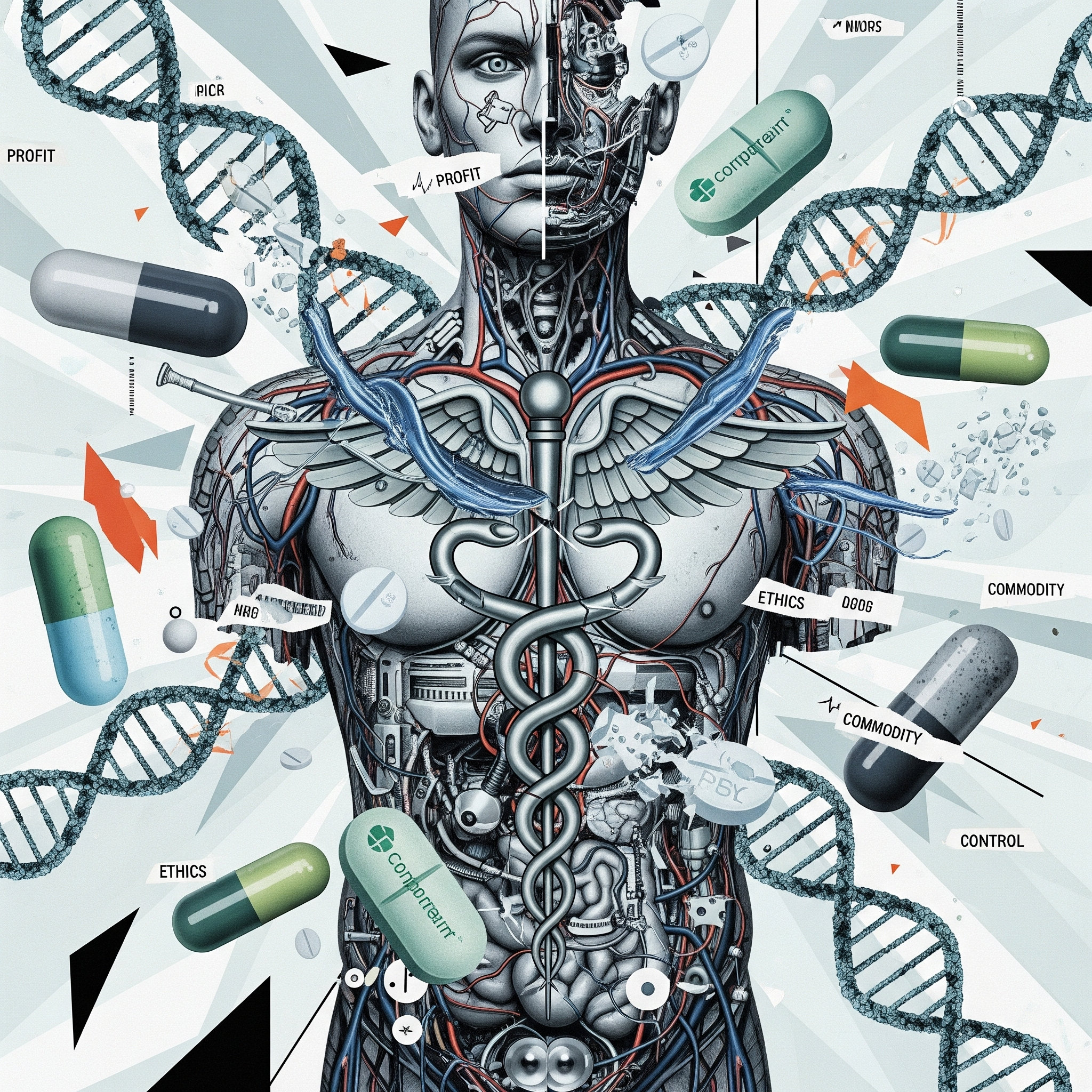The Body as a Commodity: The Gender Medicine Industry and its Pharmaceutical Patrons

The human body, in all its glorious complexity, has long been a canvas for philosophical and scientific inquiry. In the modern age, however, it has increasingly become a commodity, a territory to be conquered and monetised. Few industries exemplify this shift more starkly than what is now being referred to as "gender medicine." Far from a compassionate, evidence-based approach to alleviating distress, a sharp-eyed look at this burgeoning field reveals a lucrative, often ideologically-driven enterprise, with a host of powerful benefactors lurking in the background. It is a story of medical innovation unmoored from caution, and of the body being reshaped not by science, but by profit.
The narrative sold to the public is one of care, affirming a person's inner sense of self through hormonal and surgical interventions. Yet, behind the scenes, a different kind of affirmation is taking place - the affirmation of shareholder value. The pharmaceutical industry, in particular, has found a new and highly profitable market. A range of medications, from puberty blockers to cross-sex hormones, are no longer niche treatments but are fast becoming mainstream, multi-billion-pound industries. As the American medical ethicist and writer **Dr. Carl Elliott** has noted, the "medicalisation of identity" is a goldmine. In a 2022 article for The Journal of Medical Ethics, Elliott highlighted how this trend allows for the creation of lifelong customers, who require constant hormonal and medical oversight, and whose loyalty is cemented by the promise of an authentic self. It is a perfect business model, one that has little incentive to question its own efficacy or long-term consequences.
The speed at which "gender medicine" has expanded is truly remarkable, and entirely unprecedented in modern medical history. Typically, new treatments - especially those for minors - are subjected to decades of rigorous, double-blind trials to establish safety and efficacy. In contrast, the use of puberty blockers like Leuprorelin has been fast-tracked for use in children and adolescents, despite a distinct lack of robust, long-term data. As an extensive 2020 review by the UK's National Institute for Health and Care Excellence (NICE) found, the evidence base for these interventions is "of very low certainty." This is not a trivial finding; it is a stunning admission that the industry is built on a foundation of ideology rather than hard science. This rush to market is funny, in a bleak, gallows-humour kind of way, when contrasted with the pharmaceutical industry's notoriously slow and cautious approach to new medicines. It seems that when there is a captive and compliant market, the usual rules no longer apply.
This brings us to the second major player in this drama: the private clinics and medical centres that have sprung up to meet the soaring demand. These clinics, often funded by a combination of private equity and insurance payouts, have an inherent conflict of interest. Their profits are directly tied to the number of people who undergo their treatments. There is little financial incentive to question a patient's diagnosis or to explore alternative therapeutic avenues. A 2021 investigation by a British national newspaper revealed that a single private gender clinic in London was able to generate millions of pounds in revenue from a handful of long-term patients. The business model is simple: a diagnosis leads to a prescription, and a prescription leads to a customer for life.
The consequences of this are already becoming clear. We are seeing a growing number of detransitioners - individuals who, after undergoing hormonal and surgical procedures, have come to regret their decisions. Their stories, often suppressed or dismissed by the mainstream media, provide a chilling counter-narrative to the celebratory accounts of gender affirmation. As the journalist and author **Helen Joyce** has detailed in her work, many of these individuals report feeling rushed into life-altering decisions, with little to no psychological support or long-term follow-up care. The medical industry, it seems, is far more interested in the "before and after" of a transition than the decades of living with its consequences.
So, where does this leave us? With an industry that, in its relentless pursuit of profit, has turned human identity into a medical condition, and the body into a series of surgical and pharmacological interventions. We are being asked to believe that lifelong medical dependency is a form of liberation, and that questioning this new orthodoxy is an act of bigotry. This is a story of power, profit, and the quiet betrayal of medical ethics. The "gender medicine" industry and its pharmaceutical patrons are not just changing bodies, they are changing our very definition of what it means to be human - one prescription, and one surgical procedure, at a time.